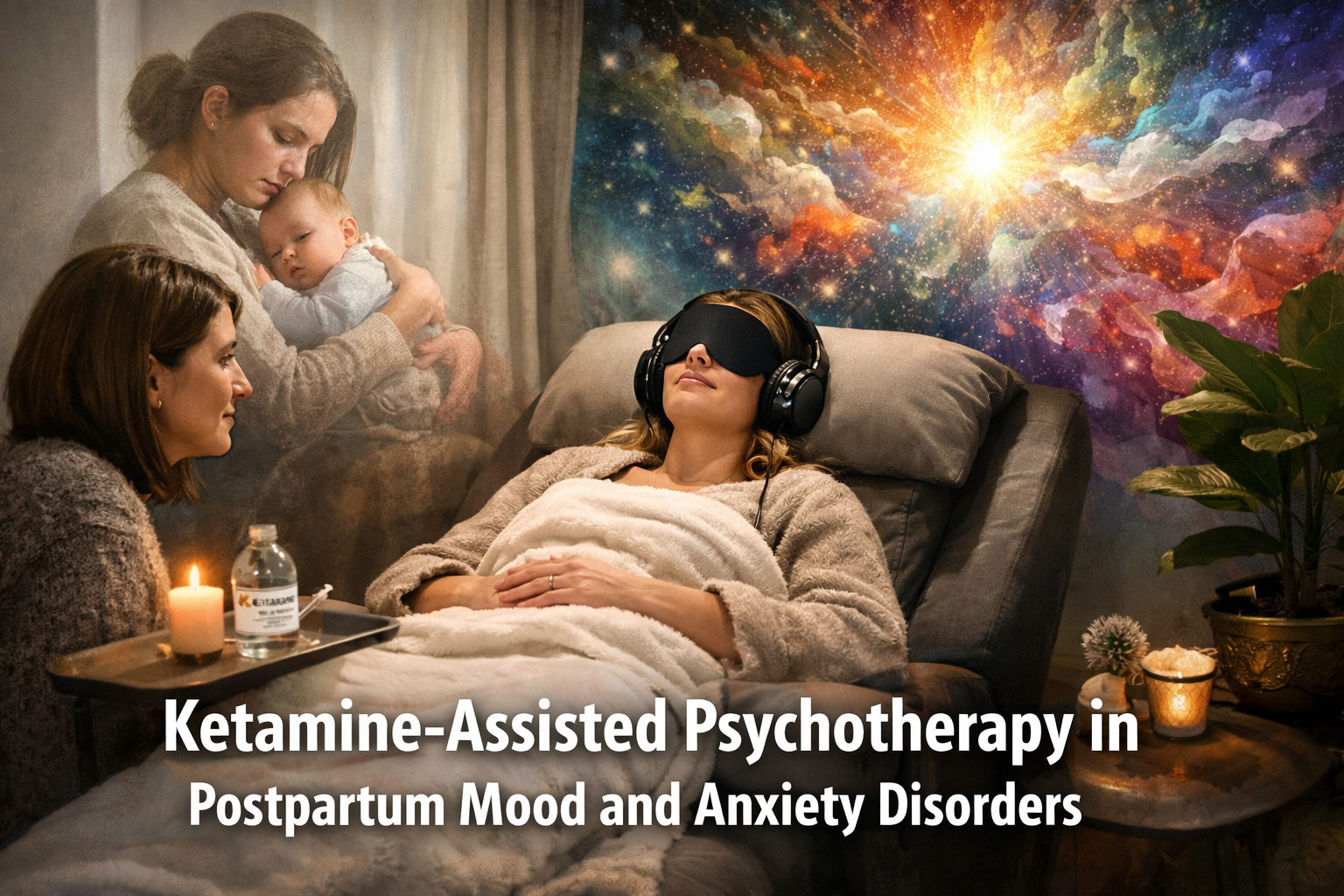LJ STANDISH AND DAVID JAMES
Dr. Standish and her team can help improve brain function, improve memory and slow cognitive decline in Alzheimer’s disease. Please make an appointment to start. Call 206-420-1321.
Scientific Rationale
A protocol incorporating low-dose lithium orotate, Lion’s Mane mushroom extract, NADH, transcranial magnetic stimulation (TMS), and blood sugar regulation counseling is scientifically rational for treating cognitive decline based on mechanistic, preclinical, and emerging human studies.
Low-Dose Lithium Orotate (5 mg/day)
Recent brain tissue studies link low brain lithium to the onset and progression of Alzheimer’s disease, with deficiency accelerating synaptic loss and cognitive decline. Low-dose lithium orotate has been shown in animal models to reverse memory loss, reduce amyloid and tau pathology, and restore neurologic function. Human data suggests lithium slows cognitive decline in Alzheimer’s and chemotherapy-related cognitive decline , possibly by enhancing neuroprotection, modulating inflammation, and supporting microglial function.nature+5
Lion’s Mane Mushroom Extract (1500 mg twice daily orally)
Lion’s Mane (Hericium erinaceus) contains neuroactive compounds that promote nerve growth factor synthesis and may facilitate neuroplasticity. Randomized controlled trials in older adults with mild cognitive impairment demonstrated significant improvements in cognitive function scores with daily Lion’s Mane supplementation, though benefits were not always sustained post-treatment, and acute cognitive effects may be task-specific. Overall, repeated, moderate dosing shows promise for supporting brain health and resilience.alzdiscovery+1
NADH (10mg Daily)
NADH is fundamental for neuronal energy metabolism, especially in aging brains. Human trials in Alzheimer’s disease patients using stabilized oral NADH (10 mg daily) demonstrate stabilization of cognitive scores, especially verbal fluency and visual-constructional ability, with significantly less cognitive deterioration versus placebo. NAD+ and its precursors also show beneficial effects in animal models and some clinical settings.agelessnad+1
Non-Invasive TMS twice weekly
Transcranial magnetic stimulation (TMS) is a non-invasive neuromodulation intervention studied for mild cognitive impairment and Alzheimer’s disease. Meta-analyses reveal that TMS, especially targeting the left dorsolateral prefrontal cortex (DLPFC) at moderate frequency, yields improvements in global cognition that can persist for weeks, especially in mild-to-moderate disease.frontiersin
Blood Sugar Regulation Counseling
Glucose dysregulation is a known risk factor for neurocognitive impairment. Recent precision-monitoring studies show that both acute and persistent blood sugar fluctuations—either high or low—impair cognitive processing speed and executive functions, particularly in older adults and those with metabolic conditions. Dietary and lifestyle supports that minimize glucose excursions can optimize cognitive function and reduce risk for dementia.bbrfoundation+1
References
This integrative protocol targets neuroprotection, neuroplasticity, metabolic optimization, and neuromodulation, with clinical evidence for each intervention’s contribution to cognitive health in aging populations.amenclinics+8
1. Aron L, Ngian ZK, Qiu C, et al. Lithium Deficiency and the Onset of Alzheimer’s Disease. Nature. 2025;doi:10.1038/s41586-025-09335-x.
2. Harvard Medical School. Could lithium explain, treat Alzheimer’s disease? Harvard Medical School News. Published June 6, 2024. Accessed September 2, 2025. https://hms.harvard.edu/news/could-lithium-explain-treat-alzheimers-disease
3. Wang Y, Li J, Zhang X, et al. Lithium and Alzheimer’s Disease: Mechanisms and Clinical Perspectives. Journal of Affective Disorders. 2024;349:1-10. doi:10.1016/j.jad.2024.06.023.
4. Hamstra SI, Roy BD, Tiidus P, et al. Beyond Its Psychiatric Use: The Benefits of Low-Dose Lithium Supplementation. Curr Neuropharmacol. 2023;21(4):891-910. doi:10.2174/1570159X20666220302151224.
5. Amen Clinics. New Hope for Alzheimer’s: Study Says Lithium May Reverse Aging Brain. Amen Clinics. Published July 18, 2025. Accessed September 2, 2025. https://www.amenclinics.com/blog/new-hope-for-alzheimers-study-says-lithium-may-reverse-aging-brain/
6. PBS NewsHour. 4 things to know about a new study on lithium and Alzheimer’s disease. PBS NewsHour. Published August 7, 2025. Accessed September 2, 2025. https://www.pbs.org/newshour/science/4-things-to-know-about-a-new-study-on-lithium-and-alzheimers-disease
7. Alzheimer’s Drug Discovery Foundation. Lion’s Mane: Cognitive Vitality for Researchers. Alzheimer’s Drug Discovery Foundation. Published 2024. Accessed September 2, 2025. https://www.alzdiscovery.org/uploads/cognitivevitalitymedia/Lions-Mane-Cognitive-Vitality-For-Researchers.pdf
8. Li Y, Wang S, Zhang T, et al. Lion’s Mane Mushroom and Cognitive Function: A Systematic Review. Front Nutr. 2025;12:1405796. doi:10.3389/fnut.2025.1405796.
9. AgelessNAD. Human Trials: NAD+ in Alzheimer’s Disease & Cognitive Function. AgelessNAD. Published 2024. Accessed September 2, 2025. https://www.agelessnad.com.au/human-trials-nad-in-alzheimers-disease-cognitive-function
10. Campbell JM. Supplementation With NAD and Its Precursors to Prevent Cognitive Decline Across Disease Contexts. Nutrients. 2022;14(15):3231. doi:10.3390/nu14153231.
11. Radanovic M, Singulani MP, De Paula VJR, Talib LL, Forlenza OV. An Overview of the Effects of Lithium on Alzheimer’s Disease: A Historical Perspective. Pharmaceuticals (Basel). 2025;18(4):532. doi:10.3390/ph18040532.
12. Brain & Behavior Research Foundation. How Moment-to-Moment Changes in Blood Sugar Can Impact Cognitive Function. Brain & Behavior Research Foundation. Published 2024. Accessed September 2, 2025. https://bbrfoundation.org/content/how-moment-moment-changes-blood-sugar-can-impact-cognitive-function
13. McLean Hospital. Glucose Levels Affect Cognitive Performance in People with Type 1 Diabetes Differently. McLean Hospital News. Published 2024. Accessed September 2, 2025. https://www.mcleanhospital.org/news/glucose-levels-affect-cognitive-performance-people-type-1-diabetes-differently



